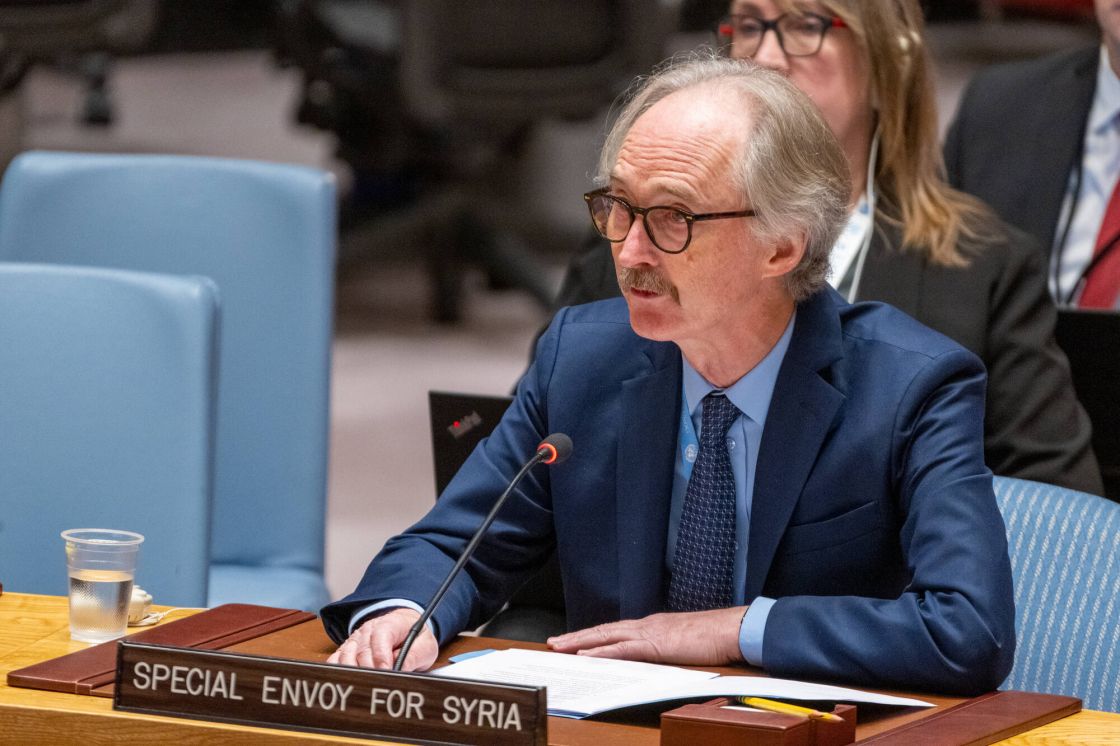- Editorials
- Posted
Kassioun Editorial 1164: The Constitutional Committee in Damascus, Politically Necessary and Practically Possible
The recent briefing the UN Special Envoy to Syria, Geir Pedersen, presented on February 27 before the UN Security Council, showed that the Constitutional Committee meetings’ venue “dilemma” still exists. This is despite the fact that he ultimately sent an official invitation to hold the ninth round of the Constitutional Committee at the end of April in Geneva. What is not clear yet is whether or not it will be actually held.
What is new in this briefing, and in the previous rigorous searches for an agreed-upon venue to hold the Committee’s meetings, including Nairobi, is that the process of throwing around the Constitutional Committee venue among Geneva, Nairobi, and a number of regional capitals, ultimately leads to an attempt to bury that Committee once and for all, and with it the political process and UNSC Resolution 2254. This would be in a manner that is ultimately consistent with the American “step for step” project, the essence of which boils down to reaching agreements under the table and then above it within the so-called “changing the regime’s behavior” approach. This would allow extending and deepening the crisis and perpetuating the de facto partition, as some of the tools of the comprehensive hybrid chaos in the entire region.
All these attempts, along with the revelation of the American and Western efforts to bury UNSC Resolution 2254, and bury the opposition as part of this process, make transferring the work of the Constitutional Committee to Damascus the only objective solution to its dilemma. It is also the solution that is practically possible by securing the necessary guarantees – especially through Astana and under UN supervision – and politically necessary, as the first step towards real direct negotiation to implement UNSC Resolution 2254.
Providing the necessary guarantees to hold meetings in Damascus is possible and applicable by relying on the forces with a direct interest in ending the Syrian crisis, at the forefront of which is the Astana tripartite along with China and the major Arab countries.
Likewise, transferring the Committee’s work to Damascus is politically necessary, because the political solution will be ultimately implemented in Syria, and implicitly drafting the new Syrian constitution, which should not be written outside Syria.
It is also necessary, because it is the actual tangible test of mutual recognition between the sides of the conflict, and their actual – not verbal – admission that the only way out is a political solution through the implementation of UNSC Resolution 2254, and not through “military victory” or “toppling”. In the end, the essence of the political solution was and still is enabling the Syrian people to exercise their right to self-determination, and the gateway to that is a transitional governing body agreed upon by the regime and the opposition, along with a constitution and elections, as stipulated by UNSC Resolution 2254, which both sides still acknowledge, at least verbally.
Transferring the Committee to Damascus means enabling it to work nonstop until it finishes its mission, which could take one month if the patriotic and political will for that exists.
Transferring it to Damascus means a serious shift towards actually starting the solution and direct negotiation on all the elements of UNSC Resolution 2254.
Finally, one of the most important tools for the Committee’s success in performing its role within the political solution is for its work to be public, so that Syrians know what those who are supposed to write a constitution for Syria are saying, and so that they can see how serious the various sides and individuals are in searching for a way out of the crisis and not in searching for what serves narrow interests. This proposal was presented by the Moscow platform during the first day of the first session of the Constitutional Committee, and it still sees it as valid and as a right for the Syrian people. The Moscow Platform continues to wait for a response to this proposal from all the Committee’s components.


